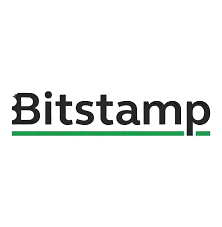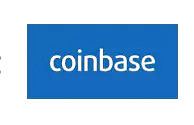Bitcoin Exchange
Filters
| Trader | Status | Type | Volume (BTC) | Certification |
|---|---|---|---|---|

OKX |
Cryptocurrency Derivatives Stable Coins |
28843 |
|
|

Bitstamp |
Approved |
Cryptocurrency |
4967 |
|

Bybit |
Cryptocurrency Derivatives Tokens |
33315 |
|
|

Kraken |
Approved |
Cryptocurrency Stable Coins Tokens |
21346 |
|

Coinbase |
Approved |
Cryptocurrency Stable Coins Tokens |
|
USD to Bitcoin: What is a Bitcoin Exchange?
Bitcoin is a popular form of digital currency, but for high school students who are new to it, the process of acquiring and trading Bitcoin can be overwhelming. One of the first challenges is understanding Bitcoin exchanges, which are platforms where people can buy, sell, and trade Bitcoin.
Think of a Bitcoin exchange as a digital marketplace where you can trade Bitcoin with other cryptocurrencies or traditional currencies like the US dollar. If you want to buy Bitcoin, you can go to an exchange, deposit your US dollars, and exchange them for Bitcoin. And if you want to learn USD to Bitcoin conversion, the exchange can help you do that, too.
But before that, when choosing a Bitcoin exchange, there are a few important things to consider:
- Security: Make sure the exchange you choose has strong security measures in place to protect your funds. Look for features like two-factor authentication and cold storage (keeping funds offline) to keep your Bitcoin safe.
- Regulation: It’s generally safer to use exchanges that operate within regulated environments. Regulation provides more protection and transparency for consumers.
- Trading options: Different exchanges offer different trading options. Consider factors like the trading pairs available (e.g., US dollars to Bitcoin, Bitcoin to Ethereum), the types of orders you can place (like buying at the current market price or setting a specific price), and the fees charged for trades.
- Ease of use: As a beginner, it’s important to choose an exchange with a user-friendly interface. Look for exchanges that are easy to navigate and provide educational resources to help you understand how to use their platform.
Some popular Bitcoin exchanges include Coinbase, Binance, and Kraken. However, it’s important to do thorough research and choose an exchange that suits your specific needs.
USD to Bitcoin: How to Convert
If you’re ready to convert your US dollars to Bitcoin, here’s a step-by-step guide:
1. Choose a Bitcoin exchange:
- Research reputable and secure exchanges like Coinbase, Kraken, Binance, or Gemini. Consider factors like fees, trading volume, security measures, and supported payment methods.
- Important: Each exchange has its own regulations and requirements. Ensure they operate in your region and comply with local laws.
2. Create an account:
- Provide your personal information and complete the KYC (Know Your Customer) verification process. This usually involves submitting identification documents.
3. Fund your account:
- Link your bank account, credit/debit card, or use other supported payment methods to deposit USD. Be aware of deposit fees and processing times.
4. Buy Bitcoin:
- Navigate the exchange’s interface and find the “Buy Bitcoin” section.
- Specify the amount of USD you want to spend or the amount of Bitcoin you want to buy.
- Review the exchange rate and any applicable fees before confirming the transaction.
5. Store your Bitcoin:
- Never store large amounts of Bitcoin on the exchange wallet. Transfer them to a secure personal wallet like a hardware wallet (e.g., Ledger Nano) for better control and security.
Congratulations! You’ve successfully converted your US dollars to Bitcoin. Keep in mind that cryptocurrency prices can change rapidly, so it’s important to research market trends and invest responsibly.
Beyond the Basics: Exploring Advanced Features
As you gain experience, explore advanced features offered by some exchanges, such as:
- Margin trading: This allows you to borrow funds to amplify your potential gains (and losses). Exercise extreme caution due to the inherent risks involved.
- Staking: Earn passive income by locking up your Bitcoin for a specific period.
The Takeaway
Venturing into the world of Bitcoin exchanges can be exciting, but remember, knowledge is power. By understanding the basics of USD to Bitcoin conversion, carefully selecting a platform, and approaching your investments with prudence, you can navigate this financial landscape with confidence.
FAQs
How does a Bitcoin exchange work?
Bitcoin exchanges operate by matching buy and sell orders from users. When someone places a buy order for Bitcoin, the exchange pairs them with a seller who is willing to sell at the requested price. The exchange typically charges a fee for facilitating the transaction.
Are Bitcoin exchanges regulated?
Regulations for Bitcoin exchanges vary across different countries and jurisdictions. Some countries have implemented specific regulations to govern cryptocurrency exchanges, while others have yet to establish comprehensive guidelines. It’s essential to research the regulatory framework of a Bitcoin exchange before using it.
How do I choose a reliable Bitcoin exchange?
When selecting a Bitcoin exchange, consider factors such as security measures, reputation, user reviews, trading volume, available payment methods, fees, customer support, and supported countries. Conduct thorough research and choose a reputable and trustworthy exchange.
Can I convert Bitcoin to traditional fiat currency on a Bitcoin exchange?
Yes, most Bitcoin exchanges allow users to convert Bitcoin into traditional fiat currencies like the US dollar, Euro, or other local currencies. You can sell your Bitcoin holdings on the exchange and withdraw the funds to your bank account.
What are the risks associated with using a Bitcoin exchange?
Using a Bitcoin exchange involves certain risks, including the potential for hacking, theft of funds, technical glitches, regulatory changes, and price volatility. It’s important to take necessary security precautions, such as enabling two-factor authentication and using a secure wallet for storing your Bitcoin.
Are there limits on buying and selling Bitcoin on exchanges?
Bitcoin exchanges often impose limits on the amount of Bitcoin you can buy or sell within a specific time period. These limits vary depending on the exchange and can be based on factors like user verification level and transaction history. Higher verification levels typically allow for higher trading limits.
Can I trade other cryptocurrencies on a Bitcoin exchange?
Many Bitcoin exchanges also support the trading of other cryptocurrencies, such as Ethereum, Litecoin, or Ripple. These exchanges offer a wide range of crypto pairs, allowing users to trade between different digital currencies.
Can I use a Bitcoin exchange without verifying my identity?
Some Bitcoin exchanges offer limited functionality and lower trading limits for users who haven’t completed the identity verification process. However, to access full trading features and higher limits, most exchanges require users to verify their identity as part of anti-money laundering (AML) and know-your-customer (KYC) regulations.
What are the fees associated with using a Bitcoin exchange?
Bitcoin exchanges typically charge fees for various services, including trading fees, deposit fees, withdrawal fees, and currency conversion fees. These fees can vary significantly among exchanges, so it’s important to understand the fee structure before engaging in transactions.
Let's stay in touch!
Sign up for our community update mailing list to stay informed.
Copyright 2025 | Powered by Coding4u